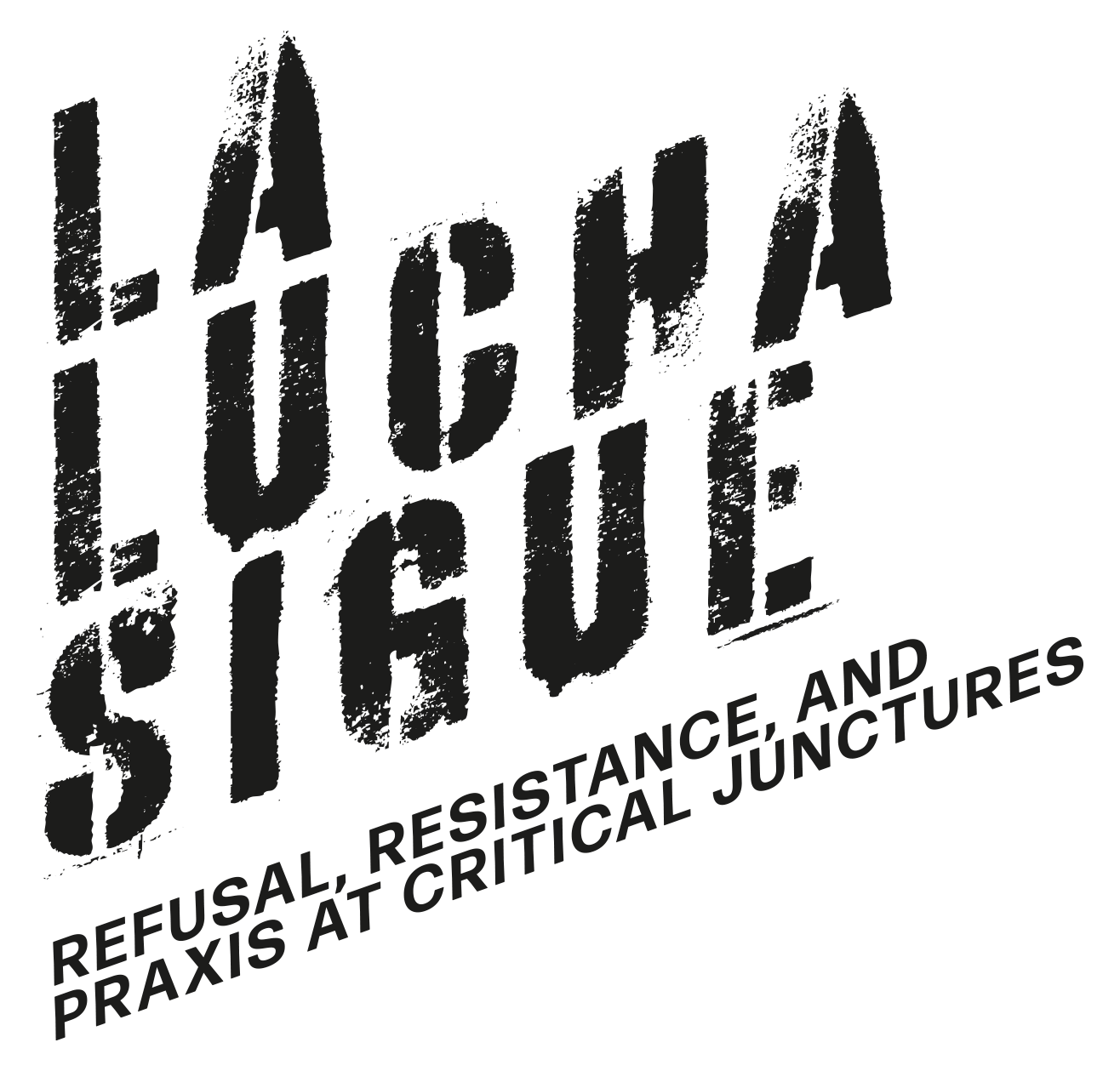
2023 AAHHE National Conference
La Lucha Sigue: Refusal, Resistance, and Praxis at Critical Junctures
The Fight Continues: Refusal, Resistance, and Praxis at Critical Junctures
La Lucha Sigue: Rechazo, Resistencia y Práctica en Momentos Críticos
March 1 - 3, 2023
College of Southern Nevada, North Las Vegas
The 2023 AAHHE National Conference La Lucha Sigue: Refusal, Resistance and Praxis at Critical Junctures aims to showcase the transformative action taking place within our respective communities. We acknowledge that intentional individual and communal actions of refusal and resistance are needed to actively contribute to the liberation in totality for Latinx/a/o/e students, staff, faculty and communities. The 2023 conference is a particularly important event, because AAHHE and the Latinx/a/o/e community are at critical junctures due to intersectional injustices, political oppression, and the ongoing pandemic that continues to impact our realities. The fight against the status quo continues. In this call for proposals, you will find information on the conference strands, submission types and the submission process. The 2023 AAHHE National Conference is showcasing the following five conference strands:

Strand 1
Refusing a Singular Lucha: Radicalization of Healing, Connecting, and Coalescing Through Critical Praxis
To heal, we must first understand the harms that exist and have yet to be addressed. We recognize that there exists multiple luchas (fights) for the Latinx/a/o/e community. These struggles have both unique and interconnected parts and offer opportunities for coalition building, coalitional praxis and coalitional reflection. This strand asks the AAHHE community to identify the struggles often marginalized and reduced by singular narratives and share successes and failures in addressing these issues. This strand seeks to inform and broaden our approaches to addressing our multiple luchas (fights) within research, practice and collaborations. We invite proposals that embrace forms of addressing these multiple struggles in the following areas (including work in progress):
- Understanding the impact of Coronavirus (COVID-19) on the Latinx/o/a/e community and in higher education.
- Recognizing and acknowledging various ways of healing and the radical act of action.
- Addressing the challenges and highlighting successes of accessing mental and physical care and health information in Latinx/a/o/e communities, both inside and outside of educational environments.
- Engaging in holistic healing practices and spaces that foster growth and emotional wellness.
- Coalitional healing, self-reflection and/or healing as a community act.
- Centering the healing and wellness of Afro-Latinx/a/o/e, Central Americans, Caribbean Latinx/a/o/e and the greater Latinx/a/o/e diaspora.
- Practicing radical hope in various ways and forms.
- Exploring sex and/or gender identity based healing practices within oppressive systems.
- Decoupling mental health and social stigma associated with coping and healing.

Strand 2
Transformative Policy and Practices at Critical Junctures
We acknowledge that we are at a place, both as a community and a nation, where we are witnessing historical injustices, political oppression and a lack of compassion in our collective experiences. We are at critical junctures and cannot and should not keep doing the same things if we are to strive and thrive. This strand draws on Grande’s (2018) words: “one of the most radical refusals we can authorize is to work together as one ... where the work of the collectivity is intentionally structured to obscure and transcend the single voice, body, and life.” (p. 62). This means examining policy-making and practice from a critical lens, including process, actors and politics that reproduce and/or dismantle inequities for our communities and higher education. We encourage proposals that (1) emphasize the interdependence and interconnectedness of policy to Latinx/a/o/e education and experiences; (2) expose inconsistencies between policy intent and implementation; (3) propose emerging critical policy frameworks that move to a nuanced understanding of policy and practice at critical junctures. Proposals that center on the following topics are welcomed:
-
Examining practices of refusal and resistance that promotes Latinx/a/o/e progress in the educational pathway.
-
Interrogating the impacts of neoliberal policies and practices on Latinx/a/o/e communities in education.
-
Engaging in co-conspirative action of interconnectedness and interdependence.
-
Creating transformative pathways to executive leadership within higher education.
-
Utilizing macro and micro level policy and practices that humanize those within higher education institutions.
-
Examining ways in which sex and/or gender are used as vehicles of empowerment and demand for change.
-
Coalition building to challenge xenophobic, anti-immigration rhetoric and legislation and nationalistic policies.

Strand 3
Resisting Traditional Ideas and Advancing New Approaches in Education Research
Theories that inform our lenses and research have been historically Eurocentric, often framing our communities in deficit ways. Part of refusal, resistance and praxis at critical junctures requires that we explore and embrace ideas and approaches in education that are interdisciplinary, anti-colonial and challenge anti-Blackness, anti-Indigeneity, transphobia and other systems of oppression. This strand seeks proposals that (1) take interdisciplinary approaches to explore new or existing concepts/ideas relating to Latinx/a/o/e liberation; (2) introduce frameworks that address praxis and frameworks centering marginalized populations, communities and emerging issues; (3) explore new questions and/or underexplored questions that challenge ‘paradigmatic’ ideas and concepts in Latinx/a/o/e education research; (4) share experiential knowledge of those engaged in praxis to advance new approaches, drawing from practice, community and research; and (5) articulate ideas, research and practices with clarity that acknowledge the audience of community members, practitioners, students and emerging and seasoned scholars. Proposals that center on the following topics are welcome:
-
Focusing on Indigenous communities in higher education.
-
Highlighting student success through utilizing new approaches, radical acts and research.
-
Recognizing the intersectional narrative within the Latinx/a/o/e community.
-
Challenging notions of Latinidad and mestizaje.
-
Acknowledging a transnational narrative within Latinx/a/o/e communities.
-
Addressing anti-Blackness, racism and colorism within Latinx/a/o/e communities and in higher education.
-
Examining, nuancing and building Latinx/a/o/e research narratives, definitions, and ways of knowing in higher education.
-
Furthering ideas, theories and understandings of Latinx/a/o/e centric research.

Strand 4
Praxis: Igniting action for the progress of Latinx/a/o/e communities
More than just thought, praxis is when theory is enacted, embodied and realized within practice. This strand seeks proposals for practices that are responsive to the needs of Latinx/a/o/e communities of higher education. This strand seeks proposals that (1) utilizes critical perspectives and practices for the advancement of all those within the Latinx/a/o/e community; (2) addresses long-standing educational inequities to forge a more inclusive and just path forward; and (3) disrupts oppressive systems through the use of praxis such as activism, grassroots organizing and other forms of action-oriented processes. Proposals that center on the following topics are welcome:
-
Centering Afro-Latinx/a/o/e identity and the greater Latinx/a/o/e diaspora with praxis in postsecondary settings.
-
Supporting student, staff and faculty success through direct action and theory to practice efforts.
-
Interrogating the ways in which institutions of higher education continue to be violent environments for LGBTQ+ Latinx/a/o/e students, faculty and staff.
-
Examining the generational differences between student activists and established college faculty and leaders.
-
Engaging in action that centers decolonial practices as a means of creating a paradigm shift.
-
Leveraging the intersections of social identities (race, gender, etc.) to actively resist systems of oppression.
-
Research Practice Partnerships (RPP).

Strand 5
Creating Coalitions in Solidarity to Address Inequities
In solidarity, there is a need to address the systemic inequities that have disadvantaged and marginalized Latinx/a/o/e youth, learners and their families throughout the educational pathway and beyond. This strand seeks proposals that (1) explore the community ties and/or partnerships; (2) explore asset-based solutions to ensure the long-term sustainability of community partnerships and their role in advancing the educational interests of Latinx/a/o/e communities; and (3) are intentional student-focused and co-curated approaches that center access, equity and inclusion in educational settings. Proposals that center the following topics are welcome:
-
Advancing community-based mentorship, community empowerment, civic engagement, non-profit or foundation work.
-
Creating leadership, mentoring, and career opportunities for Latinx/a/o/e populations.
-
Beyond traditional measures of educational attainment, approaches to increasing social mobility, inter-generational wealth, professional success and social upliftment.
-
Utilizing national partnerships for the educational progress of Latinx/a/o/e youth.
-
Building small and large scale coalitions with departments, across campus, system-wide, and/or external stakeholders.
-
Hiring, inclusion, and retention practices for Afro-Latinx/a/o/e, Asian-Latinx/a/o/e, Indigenous Latinx/a/o/e, Trans*, Gender Non-Conforming and other Latinx/a/o/e diaspora communities.


Revised October 20, 2022
|




